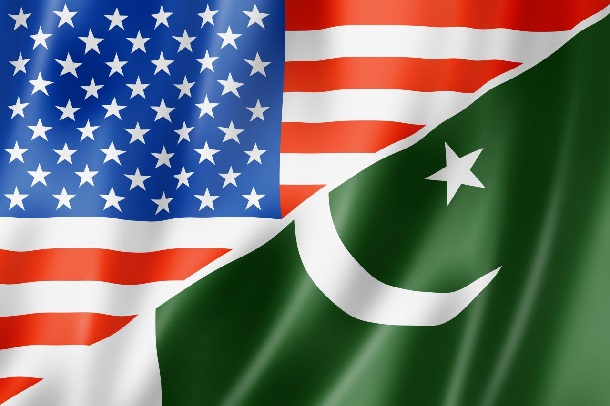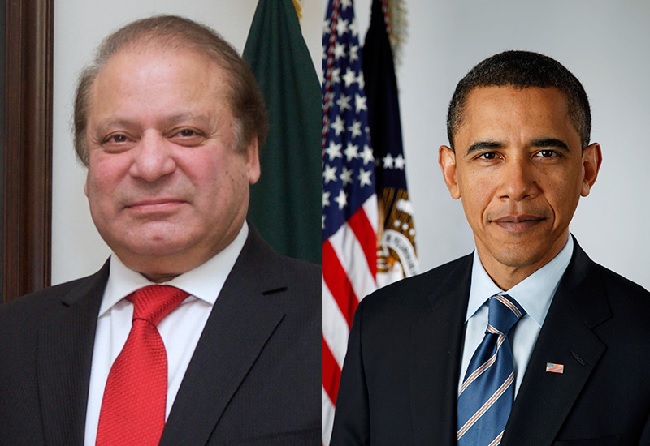By Nusrat Mirza
There are several reasons behind the US initiative to consider Pakistan’s demand to allow access to Nuclear Supply Group; however, with several conditions that United States experts are negotiating on daily basis with Pakistan’s nuclear experts. One such condition is likely to be that Pakistan should stop producing tactical war heads. According to the New York Times, Pakistan’s nuclear arsenal is the fastest growing on earth. Another condition that United States might impose on Pakistan is to restrict its missile range to the limit it has reached now. This condition is necessary to protect US and Europe from coming within Pakistan’s missile range. The third condition, as highlighted by media, is that Pakistan should refrain from producing more strategic war heads and should limit its nuclear arsenal to the extent it has achieved so far. In accordance with the estimates of western sources, Pakistan’s nuclear arsenal currently stands at 100 while Indian nuclear arsenal is estimated to be around 90.
Pakistan’s nuclear program is said to be India specific, and it was developed to deter the Indian nuclear threat. Pakistan felt the need to develop its atomic bomb when India detonated its nuclear bomb in1974 after debacle of East Pakistan to create a new country Bangla Dash out of Pakistan. Pakistan’s nuclear weapon was ready in 1983, just 9 years after Indian test. There was much ambiguity regarding Pakistan’s nuclear capability, mainly fueled by Pakistan itself. All doubts, however, were cleared when Pakistan successfully tested its atomic bomb on 28th May 1998, in response to India’s nuclear test. Pakistan had started building tunnels in Chaghi and Kharram since 1983. As a result, only 10 days after Indian test, Pakistan was a able to place all the required mechanism at the site and successfully tested its nuclear bomb. This test made Pakistan the 7th nuclear power of the world. This count does not take into account the nuclear capability of Israel as it has yet to declare itself as a nuclear power, however, it is common knowledge that Israel is a nuclear power. After Pakistan, North Korea became the 8th nuclear power of the world.
The tale revolving around Pakistan’s nuclear capability is one of great sacrifice and hard work. It is historic in nature considering the circumstances and the pressure Pakistan has to face with at that time and yet it managed to develop its atomic bomb in record time. It is said that America was aware of the fact that Pakistan had acquired nuclear capability, but still remained silent as the Afghan war against the soviets was going on at that time. This was the reason behind Pakistan’s reluctance to test its atom bomb in 1983. America was greatly opposed to the idea of a nuclear Pakistan. When Michael Krepon, the President of the Henry L. Stinson Center Washington, was accused of betraying Pakistan after Afghan war against the Soviet Union in a gathering at Pakistan Institute of International Affairs in March 1997, he was quick to lay counter blame on Pakistan for betraying the United States. He said that US aid was used to develop nuclear technology contrary to the commitment Pakistan made. He said that Pakistan had agreed not to exceed the enrichment of uranium but it did taking the advantage of Afghan war. After being pressed with arguments after arguments he sought to take the middle road by acknowledging that America became the single super power and Pakistan became a nuclear power, implying that there was no betrayal on either side. In light of this acknowledgment, American claim that Pakistan is in violation of its promise by enhancing the level of enrichment, is baseless.
America has always opposed Pakistan’s nuclear program either by questioning its security or by accusing of indulging in nuclear proliferation and helping countries like Iran, Libya and North Korea in developing nuclear technology. Things have changed; however, as now the same America is ready to give Pakistan access to the Nuclear Supply Group (NSG). The main reason for this being, as discussed earlier, that Pakistan is developing tactical warheads at a rapid pace in order to counter India’s cold start doctrine. It seems that India is determined to challenge Pakistan’s security in one way or the other, despite the fact that both countries are nuclear powers and the logical solution would be sort out all problems peacefully. In contrast, India resorted to the development of the cold start doctrine where, it sought to attack Pakistan’s eight soft lined across Pakistan’s eastern border. In response to this Pakistan developed a missile series called ‘Raad’ which has a range of 60 Km to 160 Km and is capable of carrying tactical nuclear warheads. The benefit of tactical warheads is that they lower the threshold of weapons of mass destruction and it enables Pakistan to destroy any military concentration across its eastern border within a range of 60 Km to 160 Km. All the Indian garrisons currently lie at a distance of 140 Km.
Another reason for America’s change of heart is that the US requires the assistance of Pakistan to control the Afghani Taliban and to keep them engaged in peace talks, which commenced on 7th July 2015 in Murree but were spoiled by US, Afghanistan and India for their own separate reasons. America did not want peace to be established in Afghanistan as quickly as it would have been possible with those peace negotiations and the Afghan government is in no mood to accommodate the Taliban. On the other hand India did not want to abandon its Counsel Generals in Afghanistan, which it is using to interfere in Pakistan. Furthermore the rapidly growing Pakistan-China relations, with reference to the Pakistan-China economic corridor, and the growing Russian cooperation with Pakistan is taking Pakistan towards strategic autonomy. This is in the interest of Russia and China both but it does not sit well with the US and it will try to hinder all such cooperation to some extent.
In these circumstances Pakistan enjoys a strong position and it should seek an agreement like the one offered to India in 2005 by the US and should aim for similar conditions for its civil nuclear deal. The decision to accept the civil nuclear deal offered by US should be considered after consultation with its legal and nuclear experts. It is strongly advised that Pakistan measures the benefits of being member of NSG against the conditions that the US intends to impose on Pakistan. If the conditions appear to be too strict then Pakistan is in a position to reject the deal because as far as nuclear power is concerned Pakistan is already one———— there is no doubt about it.




